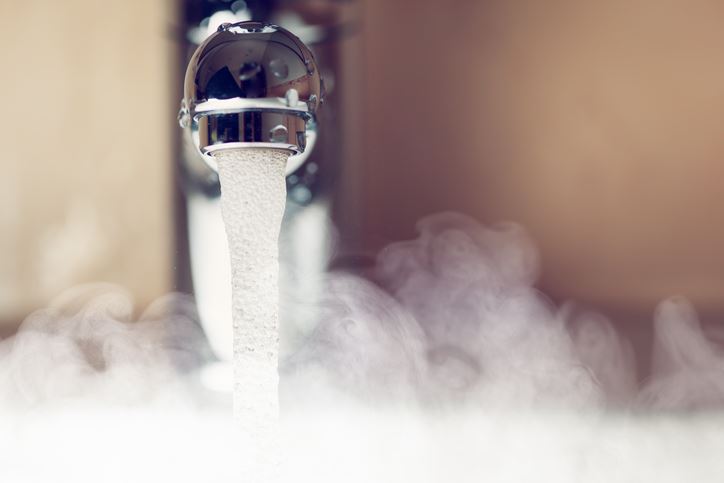What is Hard Water?
Compared to soft water, hard water has higher mineral content. When water runs through mineral deposits, varying amounts of the minerals, like magnesium and calcium, dissolve into the water, making the water hard like the minerals. While hard water may not be dangerous for our health, it can lead to the plumbing destruction.
Signs of Hard Water
Ever notice a slimy film after you’ve washed your hands? If you have, you were washing your hands with hard water. Homes without a whole-home filtration system most likely have a higher concentration of hard water pouring out of their faucets. Another indication of tiny minerals in your water is the appearance of cloudy dishes after you’ve just run the dishwasher.
How Hard Water Affects Your Home
It may not be dangerous to drink hard water, but the minerals can affect your home in various ways. The U.S. Geological Survey notes that as hard water is heated, calcium and magnesium form solid deposits. Your water heater is solely responsible for heating your water, which means a great amount of sediment can build up on the bottom of the tank. Generally, water heaters should be flushed at least once a year, and the harder your water is, the bigger the toll the mineral deposits will have on the unit.
Another effect of hard water constantly running through your pipes is what is known as scale buildup. You can compare scale buildup to a clog you might have in your shower drain. As minerals collect on your pipes’ walls, over time, the opening of each pipe narrows, resulting in lower water pressure and clogs in your system.
In addition to your pipes, mineral buildup can occur around your drains, pumps, and nozzles of your kitchen appliances. A few examples of the appliances in your kitchen that rely on hard water include the following:
- Ice machine
- Coffee maker
- Dishwasher
- Washing machine
- Kettle
The minerals will obstruct each appliance’s components, leading to higher energy costs as they will operate less efficiently. Ultimately, each appliance will have a shorter lifespan due to the effects of hard water.
Protect Your Home from Hard Water
If you can consider it lucky, you might be glad to know that water hardness doesn’t usually vary year to year. The level of mineral deposits in your water won’t increase, but there are still things you can do to limit water hardness.
The easiest way to reduce the effects of hard water on your home is by scheduling water heater maintenance services at least once a year. This service is perfect for keeping the sediment in your tank to a minimum and preserving the lifespan of your water heater. Additionally, you can reduce mineral deposits in your water altogether by installing a whole-home water softening and filtration system.
For every plumbing issue you come across, Blue Star has the solution. Give us a call to discuss your filtration needs!

